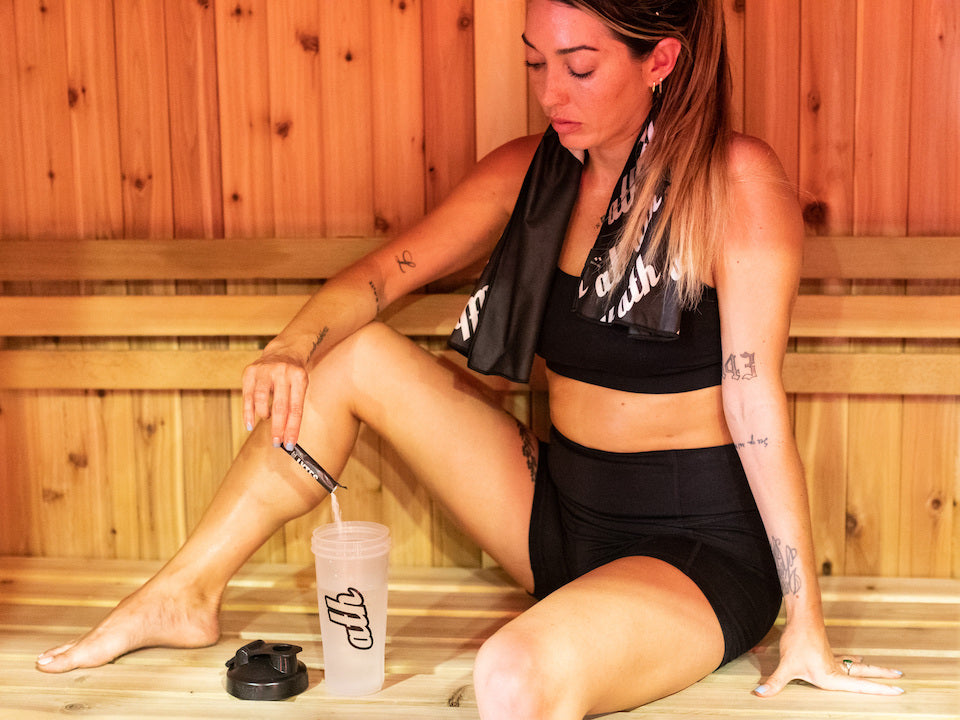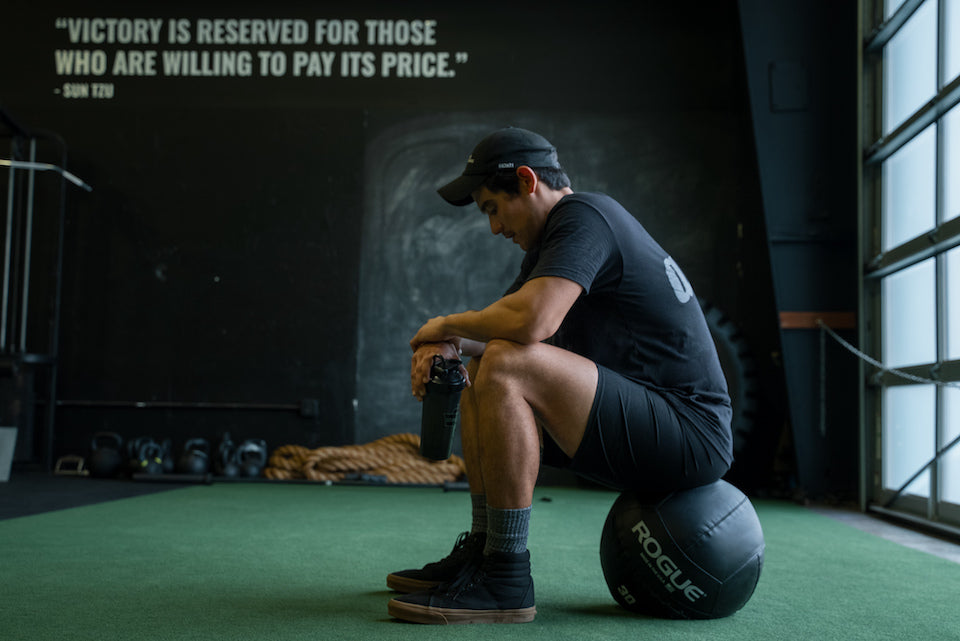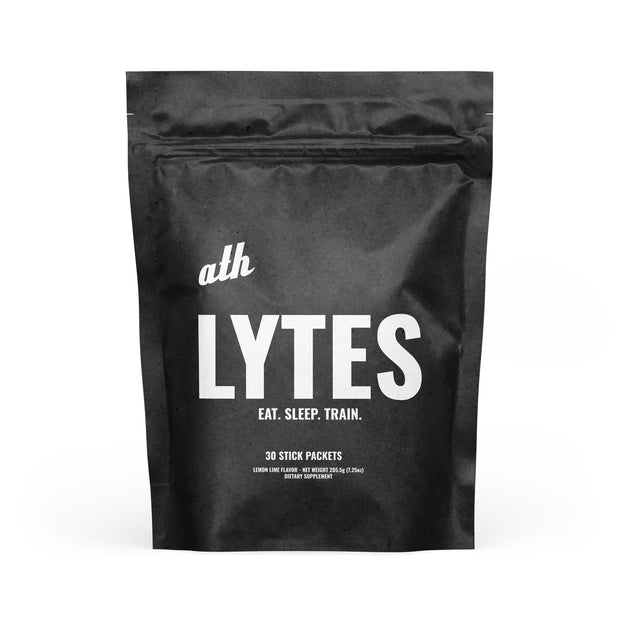Our editorial team is made up of subject matter experts with extensive, real-world clinical experience who are highly trained in evaluating clinical research. Read more about our editorial policy here.
Water Is Not The Best Hydration Tool - Here's Why

When did society get obsessed with drinking more water?
We see it everywhere, in social media challenges, from doctors, from articles, they all tell us to just drink more water.
It's all we hear, as if "just drink more water" is the key to all our problems.
Does the body need water? 100%
But is it the best hydration tool? We're not convinced...
Keep reading to learn why...
KEY TAKEAWAYS
- When we sweat, we lose more than water. We lose electrolytes in high amounts.
- Lost electrolytes need to be replenished with more electrolytes.
- Water is not optimal for fast hydration. In fact, drinking too much water in a short amount of time can cause illness and even death.
- Hydrate fast with electrolytes to maintain fluid balance.
WHAT IS SWEAT?
We have to start from the beginning, surely you know what sweat is, but let's hit a quick recap.
The body sweats to cool itself down and control body temperature.
When it's hot out or you're working out, sweat is your body's way of controlling body temperature to prevent overheating.
Here's how it works in layman's terms:
- The body's internal temperature begins to rise.
- This then kicks the hypothalamus into gear.
- The hypothalamus sends messages to the sweat glands that it's go time.
- Sweat begins to seep out the pores and rests on top of the skin.
- The heat coming off your skin then converts the water in your sweat to vapor (meaning the water evaporates).
- And once the water begins to evaporate, the body begins to cool down.
Now this is where the notion of "just drink more water" comes from!
BUT...sweat is more than just water!
WHAT'S IN SWEAT...
When we sweat, we lost a shit ton of electrolytes.
In just one hour of exercise (on average of course) we can lose:
- Chloride - 1,725mg
- Sodium - 1,200mg
- Potassium - 140mg
- Calcium - 40mg
- Magnesium - 8-10mg
These electrolytes need to be replaced and the question in fact is...
SHOULD YOU DRINK MORE WATER?
Yes and No.
It's true that the body needs water to have fluid in the tissue and survive, but too much water in a short amount of time can actually be fatal.
This toxicity is called hyponatremia.
Hyponatremia is an imbalance of electrolytes, specifically sodium, in the blood caused by an excess of total body water. In simple terms, the fluid balance in the body is off, the cells are oversaturated, and the blood is left with low amounts of sodium.
Too much water dilutes the amount of sodium in the blood, but low sodium, especially for athletes is a real problem.
How does this happen? Over drinking water, yes WATER. So yes, you need water, but no you don't need THAT much water.
Too much water can be detrimental to your health and in extreme cases cause death.
ISSUES WITH HYPONATREMIA
The main issue is the extremely low levels of sodium that hyponatremia leaves in the blood.
As we all know, sodium is key to proper fluid balance, so when it dips to dangerous levels, the body isn't able to function properly and can in some cases shut down.
Sodium is vital for optimal functioning and performance and has important roles in:
- Maintaining Fluid Balance
- Regulating Nerve and Muscle Function
- Controlling Blood Volume and Pressure
- Transporting Nutrients Through Cells
Now, we can understand better why too much water and not enough sodium in the blood can throw off bodily functions.
Important to point out, athletes are more prone to developing hyponatremia due to increased levels of sweat.
SO HOW DO YOU HYDRATE?
With electrolytes.
Remember, when you sweat, the body loses electrolytes in high amounts. Increased loss of electrolytes is commonly found in athletes, especially when exposed to heat.
Lost electrolytes need to be replaced with more electrolytes.
Newer studies show that the sweet spot for sodium intake sits between 4-6 grams per day. While other electrolytes, on average, are needed in these amounts:
- Chloride: 2.3g
- Potassium: 4.7g
- Magnesium: 420mg for men, 320mg for women
- Calcium: 1g
**These are averages. If you're a heavy sweater, elite athlete, or training really hard, you may need more based on what you're sweating out.
COMMON SIGNS OF DEHYDRATION

Dehydration happens when you take in less fluids than you excrete through sweat, urine, or other cases.
MILD DEHYDRATION SYMPTOMS
The most common signs of dehydration is thirst, but can also be accompanied with the following symptoms.
- Headache
- Muscle Cramps
- Fatigue and Weakness
- Dry Skin/Mouth
- Bad Breath
- Dark Yellow Urine
SEVERE DEHYDRATION SYMPTOMS
Severe dehydration can occur after prolonged training sessions when the body is not adequately rehydrated, during illness, while on diuretics, or due to other health complications.
The symptoms of severe dehydration include:
- Sunken Eyes
- Irregular Heartbeat
- Rapid Breathing
- Confusion
- Dizziness/Fainting
PREVENTING DEHYDRATION
Here are some quick tips on how to prevent dehydration.
- Eat sodium-rich foods.
- Eat potassium-rich foods.
- Eat chloride-rich foods.
- Eat magnesium-rich foods.
- Drink water steadily throughout the day. Key = steadily and not overdoing it.
- If you need to hydrate fast, drink electrolytes to keep your fluids in balance.
BOTTOM LINE
TL;DR
If you need to hydrate, water isn't the best tool.
When you drink too much water, in a short amount of time, it lessens the amount of sodium in the blood which can cause an array of problems.
If you're sweating a lot from heat or exercise, proper hydration includes electrolytes.
Lucky for you, we have some called LYTES that use:
- 1,000mg Sodium
- 1,860mg Chloride
- 310mg Potassium
- 105mg Magnesium
Click the button below to check them out.



